In teaching this week, two different phrases came up that required explanation for my students: mixed blessing and false dichotomy. Additionally, I used the phrase double-edged sword in a mini-lecture and had to explain that as well. These phrases and the explanations got me thinking about absolutes and how we like things to be one or the other, yet often situations, experiences, classes, and overall life is rarely that cut and dried. Hence, this week’s blog examines the language of absolutes, advantages, and disadvantages.
Beware Absolutes!
False Dichotomy / False Dilemma

For example, a situation is either black or white. For example, students who earn high grades care a lot, and those who earn low grades don’t care. This choice eliminates all other possibilities. However, gray may also be a choice, so students may earn low grades because of sickness in the family or working many hours, not because of care or lack of care about the class. These are other possibilities than the either-or scenario presented as black or white; these are gray. Sometimes there are two choices; however, more times than not there are alternatives rather than a dichotomous choice.
This logical fallacy, which is an error in logical argument, means that only two choices are possible and if one is correct, the other must be false. It is also called either-or reasoning.
Often false dilemma choices are presented as black or white, right or wrong, yes or no, day or night, one side or the other.

[embedyt] http://www.youtube.com/watch?v=BGBhWL-xy1I[/embedyt]
Advantages and Disadvantages Co-exist
Sometimes situations have both positive and negative aspects occurring simultaneously. We have some idioms for these situations.
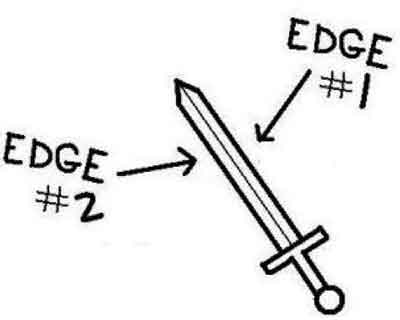
Double-edged sword – because a sword has two sharp edges, it cuts on both sides. An example might be my ESL 201 class is a double-edged sword. One the one hand, students learn a lot, but on the other hand, they have to work extra hard to do well. Thus, it is both positive and negative experience.

A mixed blessing is used when something has both positive and negative facets. If you get a high-paying, competitive job so that you earn lots of money for fun, but you don’t have any time to spend the money because you are working so much, that job would be a mixed blessing.
Two sides of a coin – a coin usually has two different aspects often called heads and tails, but it remains one whole unit. An example of this usage might be taking Mrs. C’s ESL 201 course will be a great learning experience, but the class starts at 7 am, so you’ll have to get up super early! Thus, it has both positive and negative aspects.
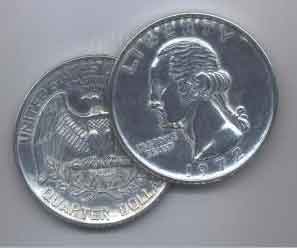
Bittersweet is used when something is pleasurable and painful at the same time. For example, Lucas is my co-author of the book Get Into Medical School. When he got accepted to the Carver College of Medicine in Iowa, it was a bittersweet for me. I was thrilled that he began his education to become a doctor but was also saddened that he would be far away for years and years.

Remember, life and language are rarely either or.
You can be happy and sad, energized and tired, or thrilled and saddened, all at the same time.
Advantages Created by Disadvantages
Other times difficult situations create the very circumstances that lead to a positive outcome. English provides some optimistic phrases for these situations as well.

There is a silver lining in the dark cloud, it is darkest before the dawn, and to get the rainbow, you’ve got to have the rain are all phrases that mean the same thing: there is good in a bad situation. Some examples of the usage could be:
The silver lining in the dark cloud of no longer teaching at UCI is that I now have the time and energy to develop my own business.

It is darkest before the dawn so during the worst situations, I can look forward to the light of morning and an improvement of the difficulty. Thus, I believe that all the time I spend giving feedback on papers will pay off in students’ writing improvement.

Since to get the rainbow, I’ve got to have the rain this means I have to work hard and suffer through vocabulary development in order to become a better writer.
Here are two more phrases that are so common, that people modify them to have fun.
When life gives you lemons, make lemonade – this means that one can take a bad situation and turn it into a good one.
Modifications of this phrase that you may see online are:
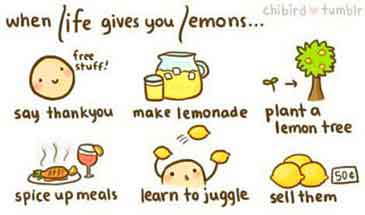
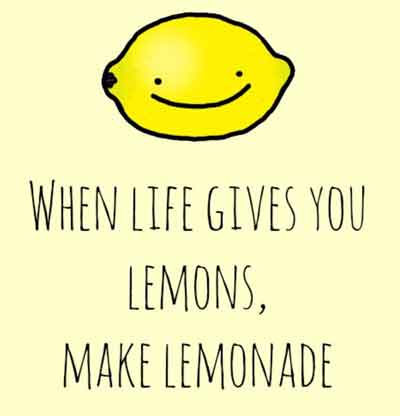
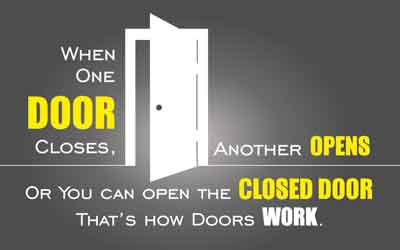
When one door closes, another opens. Or a window. This is a phrase used to express that there is always more than one way to achieve a goal.
So if your door closes and you don’t get into the school you wanted when you applied, another door will open to another school with a different opportunity.
My favorite modification of this phrase is to open the door since that’s how doors work. Love that!

